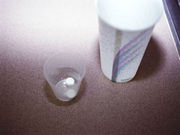Breast cancer cost-effectiveness analyses show favorable estimates with industry funding
FRIDAY, Dec. 11, 2015 (HealthDay News) — Pharmaceutical industry-sponsored studies are more likely to report favorable estimates in cost-effectiveness analysis (CEA) of drugs used in breast cancer treatment, according to a research letter published online Dec. 10 in JAMA Oncology.
Jordan D. Lane, M.D., from the Walter Reed National Military Medical Center in Bethesda, Md., and colleagues examined CEAs for breast cancer from the Tufts Cost-Effectiveness Analysis Registry. Independent associations between industry sponsorship and study results were estimated, after adjustment for drug class, cancer stage targeted, and study quality score.
The researchers found that 65 of the 105 CEA studies were industry funded. Industry-sponsored studies had nonsignificantly higher study quality ratings (mean rating, 4.8 versus 4.4 for studies with other sponsorship; P = 0.09). Industry-sponsored studies were significantly more likely to report favorable cost-effectiveness results compared with other sponsored studies (75.4 versus 40.0 percent at $50,000/quality-adjusted life-year [QALY]; P = 0.004). Industry-sponsored studies were more likely to report favorable findings among the subset of CEAs with high quality ratings (75.5 versus 45.5 percent; P = 0.04 at the $50,000/QALY threshold).
“Our analysis of breast cancer CEAs suggests that pharmaceutical industry-sponsored studies continue to be more likely to report favorable estimates than studies with other sponsorship,” the authors write.
Full Text (subscription or payment may be required)
Copyright © 2015 HealthDay. All rights reserved.








